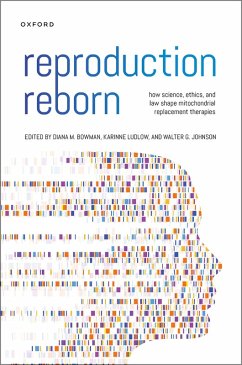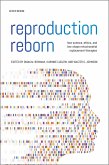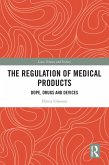A cutting-edge analysis of the global issues surrounding modern reproductive technologies Advances in assisted reproductive technologies have sparked global policy debates since the birth of the first so-called "test tube baby" in 1978. Today, mitochondrial replacement therapies represent the most recent advancement in assisted reproductive technologies, allowing some women with mitochondrial diseases to birth babies without those diseases. In the past decade, mitochondrial replacement therapies have captured public sentiment, reigniting debates around social views of reproductive rights and the appropriate legal and political response.
Reproduction Reborn guides readers through the history and science of mitochondrial replacement therapies and the various attempts to control them. Leading experts from medicine, genetics, ethics, law, and policy explore the influence of public debate on the evolving shape of these technologies and their subsequent regulation. They highlight case studies from both developed and developing countries across the globe, including recent legislation in Australia and China. They further identify the ethical, legal, and societal norms that need to be addressed by policymakers and communities as more and more people seek to gain access to these treatments. Given the importance of reproduction in family life and cultural identity, clinicians and policymakers must understand how regulatory regimes around mitochondrial replacement therapies have evolved to illuminate the processes and challenges of governing reproduction in a fast-moving world. Informative and global in scope,
Reproduction Reborn explores how advancements in assisted reproductive technologies challenge core values surrounding the rights and responsibilities of modern-day family units.
Dieser Download kann aus rechtlichen Gründen nur mit Rechnungsadresse in A, B, BG, CY, CZ, D, DK, EW, E, FIN, F, GR, HR, H, IRL, I, LT, L, LR, M, NL, PL, P, R, S, SLO, SK ausgeliefert werden.









